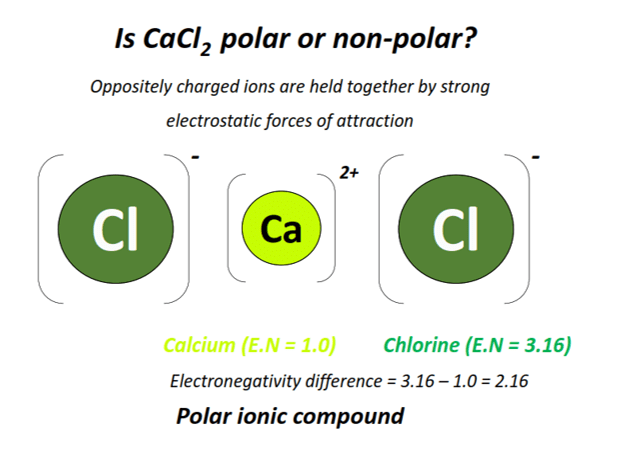The question is –
Is CaCl2 polar or nonpolar?
Answer:
⇒ CaCl2 is polar.
Explanation:
Calcium chloride (CaCl2) is polar as it is an ionic compound comprised of oppositely charged Ca2+ and Cl– ions, held together by strong electrostatic forces of attraction.
All ionic compounds are polar in nature.
CaCl2 consists of 1 Ca2+ ion and 2 Cl– ions.
Calcium (Ca) is an electropositive alkaline Earth metal from group II A of the Periodic Table. Its electronegativity value is 1.
In contrast, chlorine (Cl) is an electronegative element from the halogen group (Group VII A). Its electronegativity value is 3.16.
Therefore, an extremely high electronegativity difference of 2.16 units exists between Ca and Cl in each calcium chloride unit cell.
As per Pauling’s electronegativity scale, a polar ionic compound is formed between two dissimilar atoms having an electronegativity difference greater than 1.6 units.
Chlorine being strongly electronegative strictly attracts the shared electron cloud towards itself and gains a negative charge, while calcium gains a permanent positive charge, indicating extreme electron deficiency.
The charged electron cloud stays non-uniformly distributed, which leads to a high dipole moment value and, thus, a polar ionic compound i.e., CaCl2.

It is due to this polar nature that CaCl2 is strongly water soluble.
Like dissolves like thus polar H2O molecules dissolve polar CaCl2 readily (74.5 g anhydrous CaCl2 dissolves in 100 mL water at 20°C).
Also, check –
⇒ How to identify polar or nonpolar compounds?

